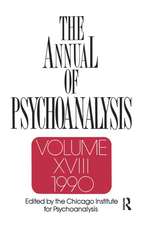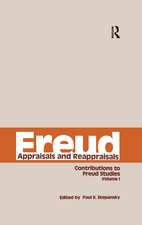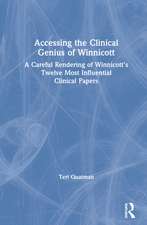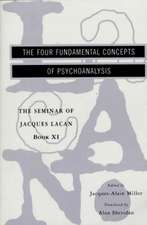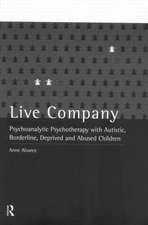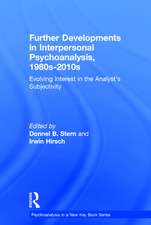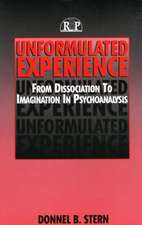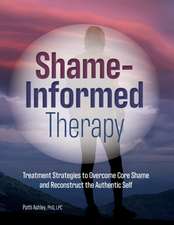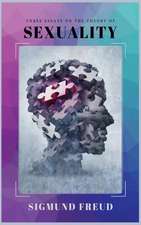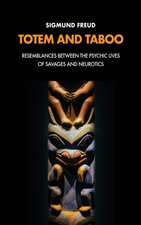Partners in Thought: Working with Unformulated Experience, Dissociation, and Enactment: Psychoanalysis in a New Key Book Series
Autor Donnel B. Sternen Limba Engleză Paperback – 21 aug 2009
The chapters in this fascinating book are undergirded by the concept that the meanings which arise from unformulated experience are catalyzed by the states of relatedness in which the meanings emerge. In hermeneutic terms, what takes place in the consulting room is a particular kind of conversation, one in which patient and analyst serve as one another’s partner in thought, an emotionally responsive witness to the other’s experience. Enactment, which Stern theorizes as the interpersonalization of dissociation, interrupts this crucial kind of exchange, and the eventual breach of enactments frees analyst and patient to resume it. Later chapters compare his views to the ideas of others, considering mentalization theory and the work of the Boston Change Process Study Group. Approaching the link between dissociation and enactment via hermeneutics, metaphor, and narrative, among other perspectives, Stern weaves an experience-near theory of psychoanalytic relatedness that illuminates dilemmas clinicians find themselves in every day.
Full of clinical illustrations showing how Stern works with dissociation and enactment, Partners in Thought is destined to take its place beside Unformulated Experience as a major contribution to the psychoanalytic literature.
| Toate formatele și edițiile | Preț | Express |
|---|---|---|
| Paperback (1) | 296.12 lei 3-5 săpt. | +22.51 lei 7-13 zile |
| Taylor & Francis – 21 aug 2009 | 296.12 lei 3-5 săpt. | +22.51 lei 7-13 zile |
| Hardback (1) | 1098.17 lei 6-8 săpt. | |
| Taylor & Francis – 21 aug 2009 | 1098.17 lei 6-8 săpt. |
Din seria Psychoanalysis in a New Key Book Series
- 5%
 Preț: 191.35 lei
Preț: 191.35 lei - 5%
 Preț: 219.54 lei
Preț: 219.54 lei - 5%
 Preț: 234.06 lei
Preț: 234.06 lei - 5%
 Preț: 226.26 lei
Preț: 226.26 lei -
 Preț: 275.46 lei
Preț: 275.46 lei - 5%
 Preț: 259.92 lei
Preț: 259.92 lei -
 Preț: 244.87 lei
Preț: 244.87 lei - 5%
 Preț: 195.28 lei
Preț: 195.28 lei -
 Preț: 244.55 lei
Preț: 244.55 lei - 5%
 Preț: 379.44 lei
Preț: 379.44 lei - 5%
 Preț: 230.75 lei
Preț: 230.75 lei -
 Preț: 245.27 lei
Preț: 245.27 lei - 5%
 Preț: 253.66 lei
Preț: 253.66 lei - 5%
 Preț: 219.91 lei
Preț: 219.91 lei -
 Preț: 191.17 lei
Preț: 191.17 lei -
 Preț: 243.92 lei
Preț: 243.92 lei - 5%
 Preț: 233.46 lei
Preț: 233.46 lei - 5%
 Preț: 274.87 lei
Preț: 274.87 lei - 5%
 Preț: 331.05 lei
Preț: 331.05 lei - 5%
 Preț: 239.86 lei
Preț: 239.86 lei - 5%
 Preț: 162.02 lei
Preț: 162.02 lei - 5%
 Preț: 231.44 lei
Preț: 231.44 lei - 5%
 Preț: 259.92 lei
Preț: 259.92 lei - 5%
 Preț: 273.58 lei
Preț: 273.58 lei - 5%
 Preț: 233.68 lei
Preț: 233.68 lei - 5%
 Preț: 1013.89 lei
Preț: 1013.89 lei - 5%
 Preț: 243.97 lei
Preț: 243.97 lei - 5%
 Preț: 278.53 lei
Preț: 278.53 lei - 5%
 Preț: 317.18 lei
Preț: 317.18 lei - 12%
 Preț: 330.99 lei
Preț: 330.99 lei - 12%
 Preț: 938.70 lei
Preț: 938.70 lei - 5%
 Preț: 457.36 lei
Preț: 457.36 lei -
 Preț: 477.40 lei
Preț: 477.40 lei - 17%
 Preț: 238.23 lei
Preț: 238.23 lei -
 Preț: 379.75 lei
Preț: 379.75 lei - 5%
 Preț: 413.98 lei
Preț: 413.98 lei - 11%
 Preț: 275.64 lei
Preț: 275.64 lei - 5%
 Preț: 379.60 lei
Preț: 379.60 lei -
 Preț: 399.79 lei
Preț: 399.79 lei - 5%
 Preț: 1413.95 lei
Preț: 1413.95 lei -
 Preț: 385.88 lei
Preț: 385.88 lei - 5%
 Preț: 362.63 lei
Preț: 362.63 lei
Preț: 296.12 lei
Preț vechi: 311.70 lei
-5% Nou
Puncte Express: 444
Preț estimativ în valută:
56.66€ • 59.32$ • 46.88£
56.66€ • 59.32$ • 46.88£
Carte disponibilă
Livrare economică 15-29 martie
Livrare express 01-07 martie pentru 32.50 lei
Preluare comenzi: 021 569.72.76
Specificații
ISBN-13: 9780415999700
ISBN-10: 0415999707
Pagini: 256
Ilustrații: black & white illustrations
Dimensiuni: 152 x 229 x 15 mm
Greutate: 0.48 kg
Ediția:1
Editura: Taylor & Francis
Colecția Routledge
Seria Psychoanalysis in a New Key Book Series
Locul publicării:Oxford, United Kingdom
ISBN-10: 0415999707
Pagini: 256
Ilustrații: black & white illustrations
Dimensiuni: 152 x 229 x 15 mm
Greutate: 0.48 kg
Ediția:1
Editura: Taylor & Francis
Colecția Routledge
Seria Psychoanalysis in a New Key Book Series
Locul publicării:Oxford, United Kingdom
Public țintă
Postgraduate, Professional, and Professional Practice & DevelopmentCuprins
Introduction: The Embodiment of Meaning in Relatedness. The Conversation and its Interruptions. The Fusion of Horizons: Dissociation, Enactment, and Understanding. The Eye Sees Itself: Dissociation, Enactment, and the Achievement of Conflict. Partners in Thought: A Clinical Process Theory of Narrative. Shall the Twain Meet? Metaphor, Dissociation, and Co-occurrence. Opening What Has Been Closed, Relaxing What Has Been Clenched: Dissociation and Enactment over Time in Committed Relationships. Enactment in Dissociation Theory and Mentalization Theory: A Clinical Comparison. "One Never Knows, Does One?" Thoughts on the Work of the Boston Change Process Study Group.
Notă biografică
Donnel Stern, Ph.D., is Training and Supervising Analyst, William Alanson White Institute, and Faculty, NYU Postdoctoral Program in Psychotherapy and Psychoanalysis. He is on the editorial boards of Psychoanalytic Dialogues, Psychoanalytic Inquiry and Psychoanalytic Psychology, and is the former editor of Contemporary Psychoanalysis. He is also the author of Unformulated Experience: From Dissociation to Imagination in Psychoanalysis (1997).
Recenzii
"Donnel Stern has done it again. In his newest book, Partners in Thought, the implications of his groundbreaking volume, Unformulated Experience, reach a level of clinical and conceptual power that firmly establish his preeminence in the vanguard of psychoanalytic thinkers whose relational sensibility is reshaping theory and practice. In Partners in Thought, Stern shows in vivid detail how Interpersonal/Relational clinical process increases the richness and robustness of a patient's self-experience and leads to increased spontaneity in communicating the full range of "who I am" in the shifting complexity of living one's life. The evocativeness of his clinical vignettes, and the stunning clarity with which he makes supposedly difficult concepts easy to understand, situates Stern as one of the unique psychoanalytic authors who speak both to a professional audience and to thinking human beings in general. The importance of this masterful volume cannot be overestimated. No matter how busy you are, I can only say, ‘Read it!’" - Philip M. Bromberg, Ph.D., author, Awakening the Dreamer (2006) and Standing in the Spaces (1998)
"Partners in Thought, in its remarkable ability to perform in the writing the experiences it describes, does something all too rare in psychoanalytic writing: It adds to the stock of available and interesting reality. At once a fascinating work in progress - there could be no formulating of unformulated experience - and a lucid account of what the struggle for articulation might be, Partners in Thought keeps the reader always on the edge of the newest intimations and possibilities that psychoanalysis can provide. As this book makes abundantly clear, with his own plain and subtle eloquence Stern is in the process of writing some of the most useful and inspiring psychoanalysis around." - Adam Phillips, Ph.D., author, Going Sane (2005) and Side Effects (2006)
"Donnel Stern's Partners in Thought elaborates in depth some of the crucial and radical shifts in contemporary psychoanalysis brought about by the confluence of relational and interpersonal thinking. In a relaxed and accessible way, Stern guides us along the tributaries to the essential concepts, cogently articulating the structure of relational thought while deftly interweaving clinical illustrations. These often focus quite usefully on the struggle to reflect honestly and deeply on our own subjectivity as an analyst. His thesis - that analyst and patient must collaborate, that two people understanding each other is necessary for one, the patient, to be understood - is directly connected to his earlier writings on the emergence of formulated experience through participation in a relationship. Grounding this thesis in a wide-ranging philosophical perspective as well as the concretum of everyday clinical experience, Partners in Thought keeps us surprised and curious - as Stern would like us to be as analysts - challenging us with the multitude of questions that our multiple selves engender. I suspect it will serve equally well the unfamiliar reader seeking a way into relational thought as the experienced reader: Both will resonate with and be stimulated anew by Stern's questions and reflections on his work as an analyst." - Jessica Benjamin, Ph.D., author, The Bonds of Love (1988) and The Shadow of the Other (1997)
"With this book, Donnel Stern has established himself as the Bion of relational psychoanalysis. Suddenly there is an intricately presented model of thinking as it manifests in the consulting room. His book is an essential guide to understanding the disordered mind in the psychoanalytic encounter." - Peter Fonagy, Ph.D., FBA, Freud Memorial Professor, University College London
"Donnel B. Stern is one of the seminal thinkers and writers in the interpersonal and relational schools of psychoanalysis…Stern’s new work, Partners in Thought, allows us to watch an idea mature and expand as Stern formulates new thoughts on dissociation and enactment…packed with philosophical and clinical ideas…Stern has shown us how he has grown as a theoretician…He has refocused clinical work on the ability to create new potential and new capacity in both patients and analysts." - Jaine L. Darwin, PsycCritiques
"A book that will stimulate thought and debate in the mind of analyst readers regardless of their theoretical orientation." - Henry J. Friedman, American Journal of Psychoanalysis
"Partners in Thought, in its remarkable ability to perform in the writing the experiences it describes, does something all too rare in psychoanalytic writing: It adds to the stock of available and interesting reality. At once a fascinating work in progress - there could be no formulating of unformulated experience - and a lucid account of what the struggle for articulation might be, Partners in Thought keeps the reader always on the edge of the newest intimations and possibilities that psychoanalysis can provide. As this book makes abundantly clear, with his own plain and subtle eloquence Stern is in the process of writing some of the most useful and inspiring psychoanalysis around." - Adam Phillips, Ph.D., author, Going Sane (2005) and Side Effects (2006)
"Donnel Stern's Partners in Thought elaborates in depth some of the crucial and radical shifts in contemporary psychoanalysis brought about by the confluence of relational and interpersonal thinking. In a relaxed and accessible way, Stern guides us along the tributaries to the essential concepts, cogently articulating the structure of relational thought while deftly interweaving clinical illustrations. These often focus quite usefully on the struggle to reflect honestly and deeply on our own subjectivity as an analyst. His thesis - that analyst and patient must collaborate, that two people understanding each other is necessary for one, the patient, to be understood - is directly connected to his earlier writings on the emergence of formulated experience through participation in a relationship. Grounding this thesis in a wide-ranging philosophical perspective as well as the concretum of everyday clinical experience, Partners in Thought keeps us surprised and curious - as Stern would like us to be as analysts - challenging us with the multitude of questions that our multiple selves engender. I suspect it will serve equally well the unfamiliar reader seeking a way into relational thought as the experienced reader: Both will resonate with and be stimulated anew by Stern's questions and reflections on his work as an analyst." - Jessica Benjamin, Ph.D., author, The Bonds of Love (1988) and The Shadow of the Other (1997)
"With this book, Donnel Stern has established himself as the Bion of relational psychoanalysis. Suddenly there is an intricately presented model of thinking as it manifests in the consulting room. His book is an essential guide to understanding the disordered mind in the psychoanalytic encounter." - Peter Fonagy, Ph.D., FBA, Freud Memorial Professor, University College London
"Donnel B. Stern is one of the seminal thinkers and writers in the interpersonal and relational schools of psychoanalysis…Stern’s new work, Partners in Thought, allows us to watch an idea mature and expand as Stern formulates new thoughts on dissociation and enactment…packed with philosophical and clinical ideas…Stern has shown us how he has grown as a theoretician…He has refocused clinical work on the ability to create new potential and new capacity in both patients and analysts." - Jaine L. Darwin, PsycCritiques
"A book that will stimulate thought and debate in the mind of analyst readers regardless of their theoretical orientation." - Henry J. Friedman, American Journal of Psychoanalysis


